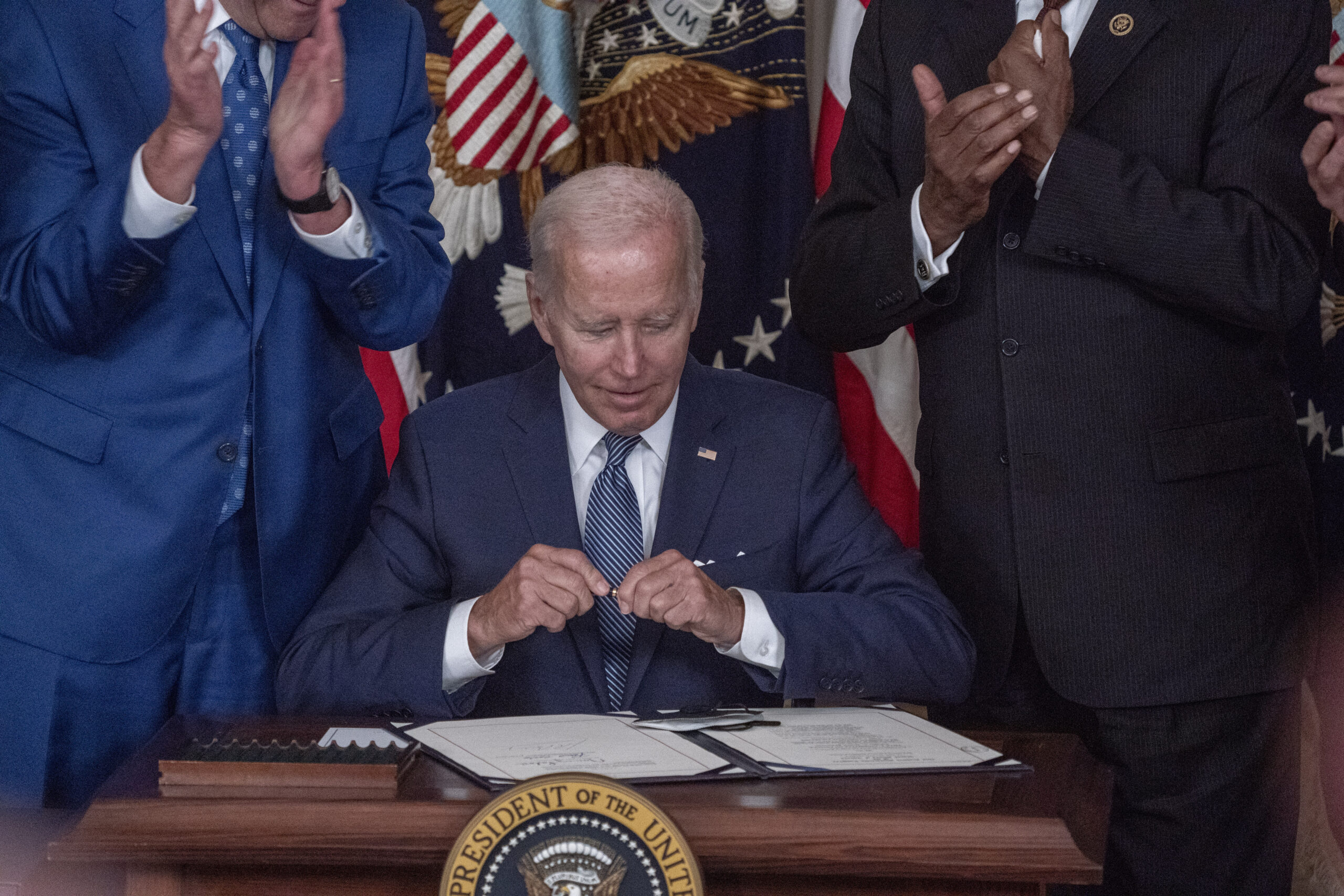
President Biden signing the Inflation Reduction into law on Aug. 16, 2022 (Ken Cedeno/Sipa USA/Sipa via AP Images)
One year later: The upsides and downsides of the Inflation Reduction Act
Wednesday is the one-year anniversary of President Joe Biden signing the Inflation Reduction Act into law, opening the door to the first government negotiations of …
Sign up to read this article for free.
Get free access to a limited number of articles, plus choose newsletters to get straight to your inbox.